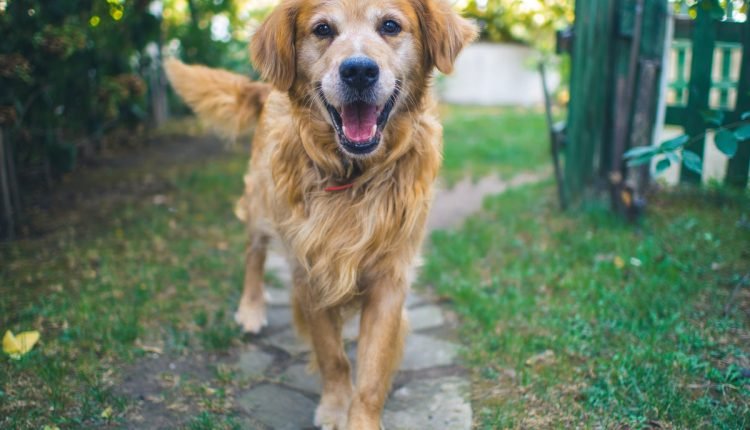[ad_1]
By Matthew Coulton on November 21, 2022
As your dog ages, his body and mind change. Beyond the graying coat and slower pace, you may see your dog’s energy levels drop or even illnesses set in. In this article, we’ll talk about ways you can adapt your care to the next phase of your dog’s life and keep him happy and healthy!
Important note: the age of the dog is different. You could have a 13-year-old Jack Russell with all the pep in the world and no signs of slowing down. You might meet another 13-year-old Jack Russell who is much slower, with cataracts and digestive issues. Like humans, dogs are unique, so customize the following tips for your pup.
1. Improve your dog‘nutrition
We encourage people to feed their dogs high quality food they can afford. This means making sure your dog is on a high protein diet with quality ingredients avoiding by-products, sulfates and too much grain filler.
As dogs age, they may develop more sensitive stomachs. It is therefore even more important to focus on high-quality nutrition that mitigates the risk of spreading disease.
For an extra boost, you can consider supplementing your dog’s diet with beneficial vitamins and minerals to keep him healthy and strong. We recommend:
Green-lipped mussel powder – excellent for mobility and arthritis symptom relief
Fish oil with omega-3 – reduces joint inflammation
Vitamin C and/or E – good for supporting cognitive function
MCT oils – help with cognitive health like memory and learning abilities
2. Schedule quarterly or fortnightly checkups with the vet
To stay on top of your dog’s health, he will have to overcome his fear of the vet! It is important to have a complete checkup at least quarterly to catch any potential illness early. Your veterinarian will give you valuable advice on nutrition, exercise, when to worry and when not to worry.
3. Adapt to new ways of playing
Games like fetch and tug of war can be taxing on your dog’s aging body and make mobility issues worse.
So how can you play with your senior dog? We love puzzle games! Interactive puzzle games for dogs are perfect candidates for older dogs as they are generally quite low impact while providing mental stimulation.
4. Learn to recognize Canine Cognitive Dysfunction Syndrome (CCDS)
Canine cognitive dysfunction syndrome is more commonly referred to as “canine dementia”. It is extremely common in older dogs and has no known cure. However, keeping your dog engaged in games that stretch his mind and calming him down when he’s anxious can help manage symptoms.
Here is a list of what to look for:
- Nocturnal Howl
- Increased anxiety
- Confusion
- Oblivion
- Repetitive licking
- Incontinence
- Loss of appetite
- Irritability
- Mood swings
5. Find new ways to exercise your dog
Just as you may need to adapt your game, you will also need to adapt your exercise routine for your senior dog. Some dogs can still take long daily walks. If so, go for it! If your dog has arthritis or hip dysplasia, you can try taking shorter walks. Some senior dogs also enjoy swimming because it doesn’t strain the joints and allows your dog to go at his own pace.
The biggest mistake is to completely cut out exercise for your dog. Even if your dog only has the energy to walk around the kitchen table with you twice, it’s better than giving up on your walk altogether.
If your dog has arthritis or hip dysplasia, you may want to see a pet physiotherapist to teach you a simple mobility routine that you can do at home to help your dog recover from exercise. exercise.
6. Research the ways your dog‘s physical health can change
Certain breeds of dogs are indeed more susceptible to certain ailments as they age. German Shepherds and Labradors are susceptible to hip dysplasia. Cavalier King Charles Spaniels are prone to arthritis and mitral valve disease (a type of heart disease).
If you know your dog’s predominant breeds, it’s worth researching what he might be prone to, early signs, and how you can support him. Trust your trusted veterinarian for the latest research and information on the diseases you care about.
7. But don’t‘don’t worry about the normal signs of aging
At the same time, don’t become a helicopter pet parent! You’ll be surprised how many times you find a lump or bump on your older dog and it’s just a fat deposit or mole. We can become hypersensitive as our dog ages, but it doesn’t have to be. Your pooch often goes through the normal harmless aging process.
Here are the things you don’t have to worry about:
- Graying fur, especially around the muzzle, ears and paws
- Bad breath (unless extremely foul)
- Lumpy fat deposits under the skin called lipomas
- Slightly veiled eyes
- Hearing loss
- To slow down
- Laborious walk
- Change in activity level
With these tips, you can help your dog live an incredible senior life full of adventure, activity, and love. Remember that your dog still has the same personality he always has, he may have different challenges to face in his senior years. Adapt your care to his needs and you will ensure the prosperity of your senior dog!

Comments are closed, but trackbacks and pingbacks are open.